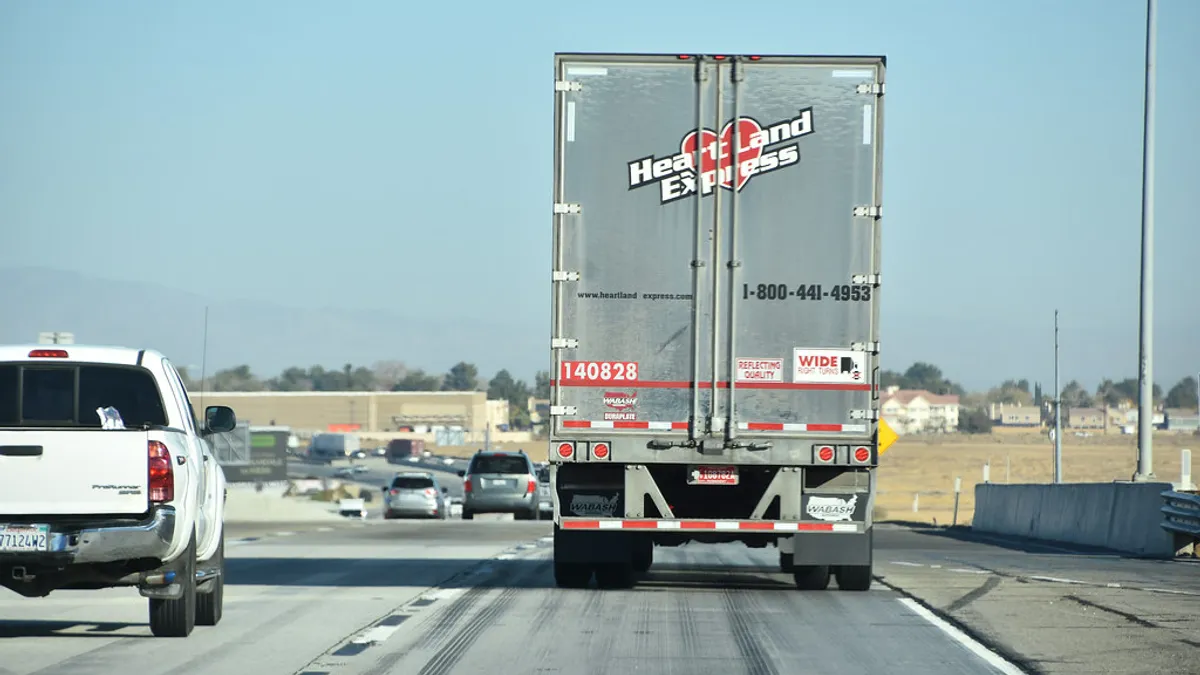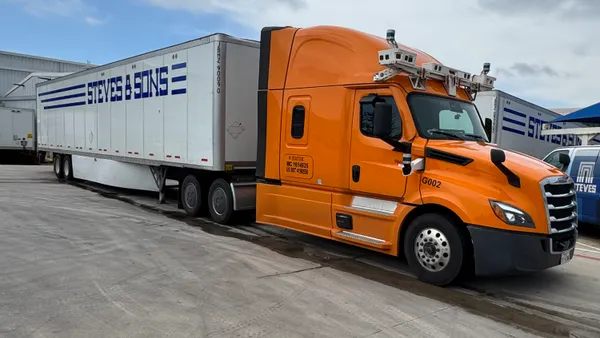Dive Brief:
- Freight demand has cooled off for Heartland Express from "unprecedented levels" in late 2021, but tight capacity is expected to continue this year, CEO Mike Gerdin said in a statement about the company's Q1 results.
- Heartland Express saw $151.3 million in operating revenues in Q1, down 0.7% YoY. This was despite the short-to-medium haul truckload carrier taking in $24 million in fuel surcharge revenue, nearly 43% higher YoY.
- "Given what we have experienced and based on feedback from our strong group of customers, we expect volatile freight demand throughout 2022 but at volumes that will continue to exceed our available capacity," Gerdin said.
Dive Insight:
Despite falling from recent highs, TL demand remains strong versus pre-pandemic levels, benefiting carriers like Heartland Express. But capacity is loosening as more trucks become available to meet shippers' needs, DAT Principal Analyst Dean Croke wrote in a market update last week.
"The reality for most is that we’re seeing an overheated market correction where demand appears to be reverting to more seasonal levels as more capacity becomes available," Croke said.
Truckload carriers will have to adapt in the face of expanding capacity throughout the industry and declining spot rates.
Heartland has positioned itself as a premium service provider rather than a carrier solely competing on price by targeting "customers with multiple, time-sensitive shipments," according to its 2021 annual report. But the carrier's report also said it's willing to shrink its fleet and limit net capital expenditures when freight markets are weaker.
Heartland is preparing to limit its fleet spending in 2022. It expects to spend between $10 million and $15 million of its net capital expenditures on revenue equipment — tractors and trailers — as a result of "lower volumes in response to the current market challenges of pricing and availability," per its Q1 earnings release. Heartland spent $18.1 million to refresh its fleet of revenue equipment in the first quarter of 2020 alone.
As spending drops, fleet age climbs. The average age of Heartland's tractors and trailers increased from Q4 2021 to Q1 2022. Tractors rose from was 1.5 years to 1.7, while trailer averages went from 3.7 to 3.8 years.Heartland expects its fleet to increase in age this year due to a shortage of reasonably priced equipment, according to its 2021 report.
Other carriers are soldiering on with fleet investments despite inflation and OEM backlogs. Landstar and Knight-Swift Transportation aim to grow their trailer fleets by 11% and 10%, respectively, this year.
"The price of new trailers coming in haven't hit us yet, but [when] we start buying, those are gonna start hitting next year," Landstar CEO Jim Gattoni said on an earnings call.













